Nursing assignments are a core part of an integrated learning experience that enables students to use critical thinking, clinical reasoning, and practical skills. To prepare for these assessments, one needs a clear perspective on what they ask for, the different research methods, how to manage time, and how to apply theoretical knowledge to practical scenarios. For those students who understand there is room for improvement in the best way to write their nursing assignments, read this detailed guide to help them make the most of their education experience.
The Assignment Requirements:
The first step to preparing for any nursing assignment is to ensure you clearly understand the requirements. It means reading the assignment brief thoroughly to understand the objectives, the criteria, and the nature of the work they are being asked to do. Below are some significant points:
1. Assignment Objectives:
Determine the goals of the nursing assignment. Do you need to write the analysis of a case study, a literature review, or a reflective nursing essay?
2. Guidelines & Format:
There are specific formatting requirements, a maximum word limit, referencing format, or other details (set out by your lecturer or tutor).
3. Evaluation Criteria:
Know the rubric to know where to spend the most time during the assignment and what will be assessed against you.
Conducting Thorough Research:
Research is one of the central points of any Nursing Assignment. The first step to writing an argument essay is to collect relevant and reliable information to back up your points and present them as facts, i.e., the sources going in your favor. Key Steps:
1. Identify Key Sources:
Locate peer-reviewed articles, clinical guidelines, and research papers using academic databases such as PubMed, CINAHL, and Google Scholar.
2. Use The Library:
Other online sources include books, journals, print journals (available at the university bookstore or library), and library resources such as books, periodicals, and other materials.
3. Stay Current:
Get articles with evidence, research, and all up-to-date practical applications in finance. The world of healthcare never rests. It changes constantly, and we need to change with it.
Organizing Information:
After collecting your research, organize the information necessary to create a logical and structured work. This is your guide, so take note:
1. Note-Taking:
Write down highlights, transcripts, and sources using digital note-taking assistive tools or the classical form.
2. Create An Outline:
Write down an outline for your assignment, including an introduction, the main body, and a conclusion. This will help maintain a logical structure.
3. Categorize Information:
Group like information together. For example, if you have to write pages on a particular disease, divide the information by headings such as symptoms, treatment, and nursing interventions.
Time Management:
Effective time management is important to complete nursing assignments on time without compromising the quality of the work:
1. Create A Schedule:
Divide the assignment into small tasks and slot them in at the appropriate times. This stops us from being in hurry-busy mode and keeps us moving steadily.
2. Set Priorities:
Write the most crucial parts of an assignment, e.g., research and a draft.
3. Avoid Procrastination:
Stay disciplined and avoid distractions. Employ methods such as Pomodoro, which may help increase focus and productivity.
Applying Theoretical Knowledge To Practical Scenarios:
Nursing assignments often call for students to use theoretical knowledge in practical situations. So, how do you transition from theory to practice?
1. Understand The Theory:
Make sure you have a thorough knowledge of the nursing theories and models suitable for this type of paper. The basis is the basis on which they will be used in the real work.
2. Use Case Studies:
Practice applying theoretical concepts to case studies or hypothetical situations. It is an excellent way to show how theory matches praxis.
3. Reflect On Clinical Experience:
You should utilize your rotations and experiences with patients. Drawing on real-life situations and examples makes assignments sound more human.
Critical Thinking & Analysis
Critical thinking is vital for nursing students to assess situations and make the right decisions about the care they provide. How do you display crucial thinking in your assignments? Be sure your work shows your ability to think critically. Here are several vital tips on how to do so:
1. Question Assumptions:
Do not accept information as if it were the whole truth as if there were no other options. Bottom Line: Challenge what’s accepted and explore different narratives.
2. Analyze Data:
Be critical of the evidence you have found. Assess the methods of the studies and their quality.
3. Draw Conclusions:
With your analysis in place, reach sensible conclusions. Ensure that your arguments are based on logic and evidence.
Writing & Presentation:
Good writing is a must for expressing your thoughts and arguments to the reader:
1. Follow The Structure:
Follow the outline that you have made. Make sure each follows from one to the next and is second nature.
2. Be Clear & Concise:
Keep the language clear and straightforward. Do not use jargon and long sentences.
3. Use Proper Referencing:
Cite all the sources adequately using the required referencing style (e.g., APA, MLA, Harvard). This ensures that your work looks more authentic and plagiarism-free.
4. Proofread & Edit:
Double-check your work, spell-check it, and ensure your sentences flow correctly. Editing clarifies all ideas. It allows for cleaner content, making the piece clearer and flowing better.
Seeking Feedback & Support:
One of the other good habits you can develop is getting feedback from your peers, instructors, and mentors, who can provide you with critical advice on improving your assignment. Here is how you can utilize feedback and make the best use of it:
1. Peer Review:
If you exchange assignments with a classmate, he will offer a completely new view. Peer reviews are an effective tool in pointing out ways to improve that you may not have noticed.
2. Instructor Guidance:
Feel free to contact your instructors for clarification or guidance. They can steer you in the right direction.
3. Utilize Support Services:
Many institutions have writing centers or tutoring services that can be beneficial. Guide your assignment with these resources.
Reflective Practice:
Reflective practice is essential to nursing education, helping students learn from their experiences and studies. Ways to Integrate Reflection into Assignments are:
1. Reflect On Experiences:
Consider the clinical experience that comes to mind when reflecting on the assignment prompt. What did you learn? How does this apply in practice?
2. Use Reflective Models:
You can structure your thoughts using reflective models like Gibbs’s Reflective Cycle, Richard Schon’s Reflective Practice, etc.
3. Link Theory To Practice:
Translating Theory into Action and Vice Versa; Reflections: Consider how your theoretical knowledge has helped you in direct service. This shows a thorough understanding and application of the lessons.
Utilizing Technology & Resources
In today’s digital world, technology can help you with nursing assignments.
1. Digital Tools:
Use digital tools (such as Evernote, OneNote, and MindMeister) to manage notes, research, and outlines.
2. Online Databases:
Read through some research studies on online databases and libraries.
3. Educational Platforms:
Interact online through educational portals like Coursera and Khan Academy for more study materials and tutorials.
Conclusion:
Conclusively, a lot of practical preparation is needed, which means that students must first understand individual requirements, research well, manage time as best they can, and then reflect on some theoretical knowledge in their natural orientations. Considering these, nursing students could improve their knowledge, get quality grades for their assignments, and eventually succeed academically and professionally.




 UK Cities
UK Cities